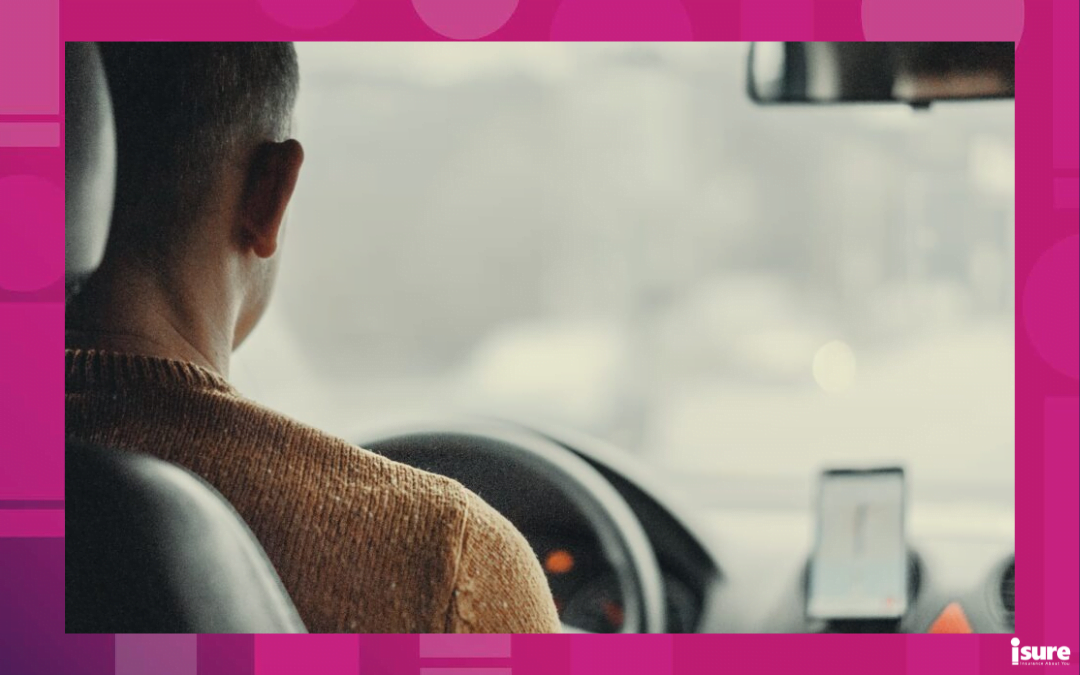Nowadays, rideshare services play a massive role in getting commuters safely to their destinations. Let’s face it, no matter who you are, there is a good chance you’ve used one yourself! With services like Uber and Lyft becoming increasingly popular, specialized insurance policies are more important than ever to keep drivers safe. Average rideshare drivers spend roughly eight hours on the road per day. They also carry passengers with them for most of this time. In many cases, the average car insurance policy won’t cover them if these drivers get into an accident on the job. So, what insurance policies are available for these drivers? Why are many drivers choosing to opt out of additional coverage?
What are the risks of being a rideshare driver?
As you can imagine, being a rideshare driver has no shortage of risks. Like any driver, you risk the chance of getting into an accident. Even the most experienced of drivers can slip up at times. You also don’t have control over how other drivers act on the road. Rideshare drivers also face a plethora of physical and mental health risks, starting with sitting for long hours a day. When you’re on the road for such long periods, you lack exercise, access to washroom facilities, and healthy food options.
On top of this, many rideshare drivers choose to drive in the evening hours, especially if it’s a second source of income. A poor sleep schedule can be dangerous when behind the wheel. This is all topped with the potential to deal with verbal abuse from passengers who may be intoxicated. In some cases, drivers are assaulted by passengers who aren’t acting accordingly. Rideshare drivers also face stressors about negative passenger ratings and worry about whether they will have enough rides for the day. This is especially true in cities such as Toronto, where there is a massive influx of rideshare drivers in every neighbourhood. Additionally, there is an extensive transit system. This leaves passengers with other options if they wish to avoid traffic.
What auto insurance packages are available for rideshare drivers?
Companies, like Uber and Lyft, only require you to have a basic car insurance policy. They check this when you first sign up to become a driver. However, in most cases, a basic car insurance policy won’t suffice if you plan on being a rideshare driver as your main source of income. This is because many insurers will not cover you or your vehicle in the event you get in an accident while driving customers around. This results in paying out of pocket for damages and medical costs, not including any injuries your passenger may have endured. On top of this, many insurers may decide to cancel your policy if they find out you were ridesharing without their acknowledgment.
If you are deciding to become a rideshare driver, it is important to pick up an insurance policy from one of the multiple insurance companies that offer them. This includes Aviva Insurance or Economical Insurance.
Why do ride-share drivers opt out of additional coverage?
Though multiple insurance companies offer insurance for rideshare drivers, many drivers tend to opt out of purchasing the additional coverage. This is the case even with access to information regarding additional insurance coverage.
“The top five transportation network companies all have fairly robust websites when it comes to helping their drivers know what to purchase,” says Edward Walker, Shared Economy Practice Leader at HUB Insurance Brokers. “That being said, those are strong recommendations, they’re not mandatory.”
Due to high inflation and a looming recession fear, many rideshare drivers are left having to make a decision. This is between choosing better insurance coverage or simply risking it without. On top of this, if said recession fears materialize, the jobs of rideshare drivers may be at stake. When it comes to rideshare applications, many platforms create personal auto coverage risks for insurers’ clients. This is especially true due to the current economic conditions. Because of this, there are a lot of uninsured rideshare drivers on the road.
“A lot of drivers today are cutting corners [and] insurance, in the grand scheme of things, tends to be one of the things – when people are pressed on their budgets – [that is among the] first to go,” Walker tells Canadian Underwriter.
Additional insurance is not mandatory for most rideshare companies
Most rideshare programs will recommend that a driver gets additional coverage. However, new drivers applying to work for any big rideshare company will still be accepted if additional coverage isn’t purchased. This results in many rideshare drivers choosing to opt out.
“You could make an argument that ‘Hey, I do it on weekends, just delivery.’ Or perhaps [the insured] doesn’t care much for the vehicle [being used]. There are nuances to it. But realistically speaking, you can find yourself in a pretty significant situation financially,” states Walker. Not only this, but many accidents can extend beyond just vehicle damage. In many cases, medical bills are also a factor. Walker states that many “disastrous outcomes” are due to situations such as these.
Conclusion
If you are looking into becoming a rideshare driver yourself, it is highly recommended you purchase additional coverage. This is the case whether you are deciding to drive full-time or part-time. Not only are you putting yourself in danger, but you are putting an innocent passenger at risk, as well. On top of this, the financial consequences can be a very heavy burden. Whether you are a rideshare driver or simply one who drives to work every day, putting the safety of yourself and others should always be a top priority.
As mentioned above, check out some of the multiple Uber insurance options for rideshare drivers. If you’re looking for any sort of assistance in finding the perfect car insurance premiums, we’re here to help. Contact us or request a quote today!




